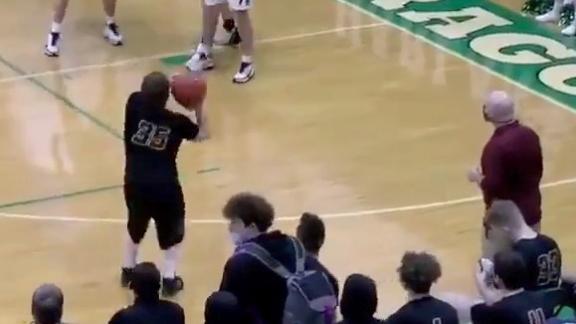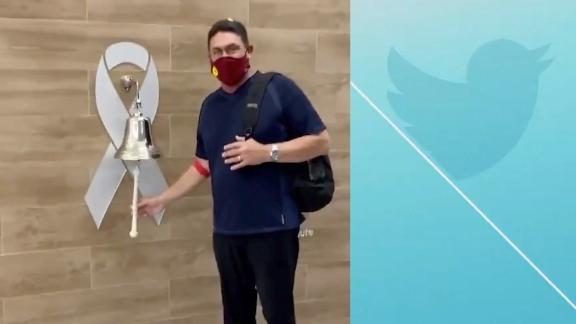The NCAA's ongoing investigation into North Carolina football is getting costly for Butch Davis. On Monday, the organization banned wide receiver Greg Little and defensive end Robert Quinn for accepting benefits from a California agent, and All-ACC defensive tackle Marvin Austin, who bypassed the NFL draft to play this year, was dismissed.
But the worst for the 3-2 Tar Heels may be yet to come.
The File has obtained this contract with UNC's broadcast rights partner, Learfield Communications, which shows the financial hit the university could take if the NCAA decides to level postseason sanctions.
Learfield is a major player in college sports, producing radio game broadcasts and coaches' TV shows for 50 schools around the country, as well as handling Internet and stadium promotions.
None of this comes cheap. Learfield -- like its competitors -- has to pay for the rights to be a university's exclusive broadcast partner, and UNC is its largest client. In the current contract year, the privately held Missouri company is due to pay North Carolina a whopping $6,567,856.
That number goes to $7.5 million by 2021, making it the third highest-paying deal in all of college sports.
One reason Learfield is willing to guarantee so much -- besides UNC's squeaky-clean reputation -- is that it gets to keep 49 percent of whatever it makes after paying the guarantee. And as long as UNC is winning, everything is great. When Roy Williams led the Tar Heels to an NCAA title in 2009, Learfield made a profit from the full range of its offerings, from branded cups to stadium signage and the advertising rates it charged for its broadcasts.
The problem comes in stretches like the one from July 1, 2009 to this June 30. Williams' team was frozen out of the NCAA tournament and Davis' squad lost to Pittsburgh in the Meineke Car Care Bowl. As a result, the university didn't generate enough revenue to top Learfield's guarantee, according to assistant athletic director Rick Steinbacher.
That made expectations particularly high for this fall, when Davis was returning his first recruiting class for its fourth year and fans had visions of a national championship. It's also what makes the burgeoning scandal so potentially costly for UNC.
Only a handful of things allow Learfield to "negotiate in good faith a fair and equitable reduction in the annual rights fee." And one of them is any sanction that causes athletic department revenue to decline by more than 5 percent of the average of the prior three years.
As article 4.06 of the contract explicitly states, Learfield can seek the reduction if UNC's football or basketball teams incur "sanctions [that] prohibit any of them from appearing in conference championship games ... or materially reduces the number of scholarships that can be offered ... " Steinbacher calculates that the athletic department would have to lose about $300,000 for the clause to go into effect.
Earlier this summer, it seemed inconceivable that anyone would be talking about such things. But each day seems to bring new accusations about Davis' former assistant and recruiting director, John Blake, who resigned in September after acknowledging that he had become a "distraction" for the program.
In August, Yahoo! Sports broke the news that while Blake was secretly on the payroll of California agent Gary Wichard, he arranged for Austin, a star defensive tackle, to take at least two trips to a training facility near Wichard's office in California. On Monday, the NCAA also announced that it found Little accepted diamond earrings as well as travel gifts to the Bahamas, Washington, D.C. and Miami, while Quinn accepted two black diamond watches, a pair of matching earrings and accommodations for a trip to Miami.
Also on Monday, Davis took the step of publicly repudiating his former assistant. "I am very sorry that all of this stuff has tainted the football program and, as the head football coach, I take a tremendous amount of responsibility for all the football-related issues," Davis said. "I'm the head guy, OK? I'm sorry it has affected the football program. But I'm going to tell you what I'm more sorry about: I'm sorry that I trusted John Blake."
In an interview with The File, Greg Brown, president and CEO of Learfield, called what he does a "high-risk, low-margin business," and said he is committed to working out whatever arises amicably. "If there are sanctions, we'll just have to figure it out," he said. "I take this very personally. These schools are like our children, and anytime one of my children is struggling, it hurts. These are partnerships."
The risk for UNC is that the contagion in the football program can economically rocket across the university. According to Steinbacher, Learfield's $6.5 million represents about 11 percent of the athletic department's gross revenue and gets deposited in a general fund that is then parceled out to the other programs covered under the contract -- from women's basketball, to tennis, to track and field.
"It's an important source for us," he says.
A.J. Maestas, who advises colleges on striking rights deals through his Chicago-based Navigate Marketing, says it's difficult to speculate on how much sanctions can actually cost a rights partner. "It's a complicated calculation that has to do with TV time and how many national sponsors are involved."
But this is a hard time for Learfield to be generous. Two of its archrivals, ISP and IMG, are merging into a powerhouse that will give them the rights to 82 schools and consolidate the marketplace. Worse, the economic downturn has hit the whole market hard.
"There is no doubt that Learfield is not in an investment mode," says Maestas. "The last two years have been a tough selling climate. It's focused on maximizing revenue from its investments right now. If nothing else, sanctions against UNC would give it leverage."
Who's the most powerful man in UNC sports? With Blake gone, and with calls mounting for Davis to resign and athletic director Dick Baddour on the ropes, it seems like Learfield's Greg Brown might be.
File Under ...
ROBERTO ALOMAR DIVORCE GETS UGLY: Getting into the Baseball Hall of Fame may be all about the numbers, but it's going to be hard to walk by Robby Alomar's plaque in Cooperstown without thinking about this lawsuit. As first reported by the New York Post, his wife, Maria Del Pilar Alomar, alleges in this divorce petition that "Roberto Alomar Velasquez, who was infected with the HIV virus, failed to inform [her] that he had such a disease and, in fact, intentionally and with total disregard of [her] emotional and physical well being ... continued to engage in sexual conduct with her." The petition states that Alomar also lied to his wife by telling her that "he had been tested and the blood tests were negative." She claims she learned that was false when she "found pharmaceuticals and information stating that [he] was HIV positive."
BROWNS OWNER WANTS HIS MONEY BACK: Randy Lerner, the billionaire owner of the Cleveland Browns, is suing two sisters who run a New York hedge fund, claiming that they're holding $40 million of his money hostage. According to Forbes, Lerner is claiming in the suit in Delaware Chancery Court that one of the sisters, Michele Paige, threatened to put his money in high-risk securities unless he paid them millions more. No word if those investments were any higher risk than Seneca Wallace.




